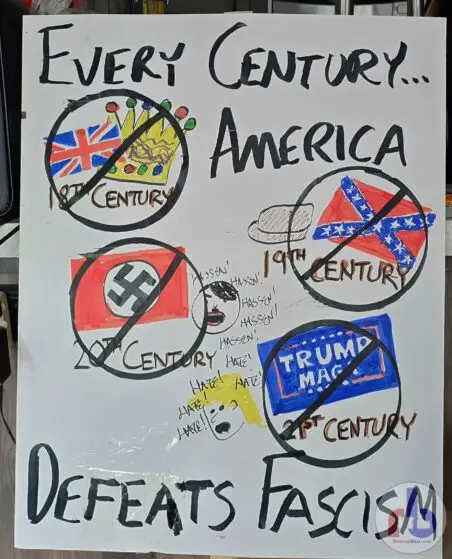 Ethan Nadelmann of the Drug Policy Alliance has a great post on Huffington Post. It just speaks to the obvious truth: when we’re facing so many budgetary shortfalls with hurricane relief, deficit, and the war in Iraq, it makes no sense to spend billions on arresting pot smokers.
Ethan Nadelmann of the Drug Policy Alliance has a great post on Huffington Post. It just speaks to the obvious truth: when we’re facing so many budgetary shortfalls with hurricane relief, deficit, and the war in Iraq, it makes no sense to spend billions on arresting pot smokers.
Sometimes one has to give credit where credit is due. That’s how I feel about the proposals by President Bush and some House conservatives to cut ineffective drug war programs to pay for hurricane relief efforts. I personally disagree with many of their other proposed cuts, but they are right to target the failed war on drugs.
We can start with those stupid anti-marijuana TV ads that cost taxpayers $120 million a year. You know, the ones that claim that drug users are terrorists, and that smoking marijuana will make you crazy, get you pregnant, and cause you to shoot your neighbor. Give me – and taxpayers – a break! The Republican Study Committee is right to suggest eliminating the program. They’re also right to suggest curtailing recent spending increases on the counter-productive Andean Counter-Drug Initiative (formerly called “Plan Colombia”). Completely eliminating the program, as drug policy reformers and human rights groups recommend, would save $725 million this year alone. I bet Katrina’s victims would be grateful.
Even before Katrina, President Bush proposed eliminating several drug war programs, including the Byrne Memorial Justice Assistance Grant program, which among other things funds out-of-control local anti-drug task forces. These task forces are committing major civil rights abuses across the country. The most well-known Byrne-funded task force scandal occurred in Tulia, Texas, where dozens of African American residents (totaling over 16 percent of the town’s African American population) were arrested, prosecuted, and sentenced to decades in prison, based solely on the uncorroborated testimony of one undercover officer with a history of lying and racism. Texas Governor Rick Perry eventually pardoned the Tulia defendants (after four years of imprisonment), but these kinds of scandals continue to plague Byrne grant program spending.
While some of the Byrne money does go to good things, no one should be sorry to see the program go. Until states are forced to pay the full cost of their punitive crime control policies, they will never have to consider reform. Federal law enforcement subsidies to the states are driving over-incarceration and need to stop. At $800 million a year the money would be better spent elsewhere, such as drug treatment.
Of course, none of these proposed cuts go far enough. Imagine how much money would be saved if the government simply stopped arresting people for marijuana. And what if instead of incarcerating people with substance abuse problems, we provided them with drug treatment? California voters approved our treatment-instead-of-incarceration initiative in 2000 and taxpayers have already saved more than a billion dollars. That’s just one state, and one reform.
Instead of cutting funding to programs that help people, why not cut funding to programs that hurt people? I can’t think of a better time to have this debate. With the scramble to find money to pay for hurricane relief efforts, the war on drugs may be an area where the left and (at least part of) the right can come together.
You can urge Congress to cut drug war programs here. (Shameless Plug Disclaimer: This link goes to the web site of the Drug Policy Alliance. I’m their executive director).






